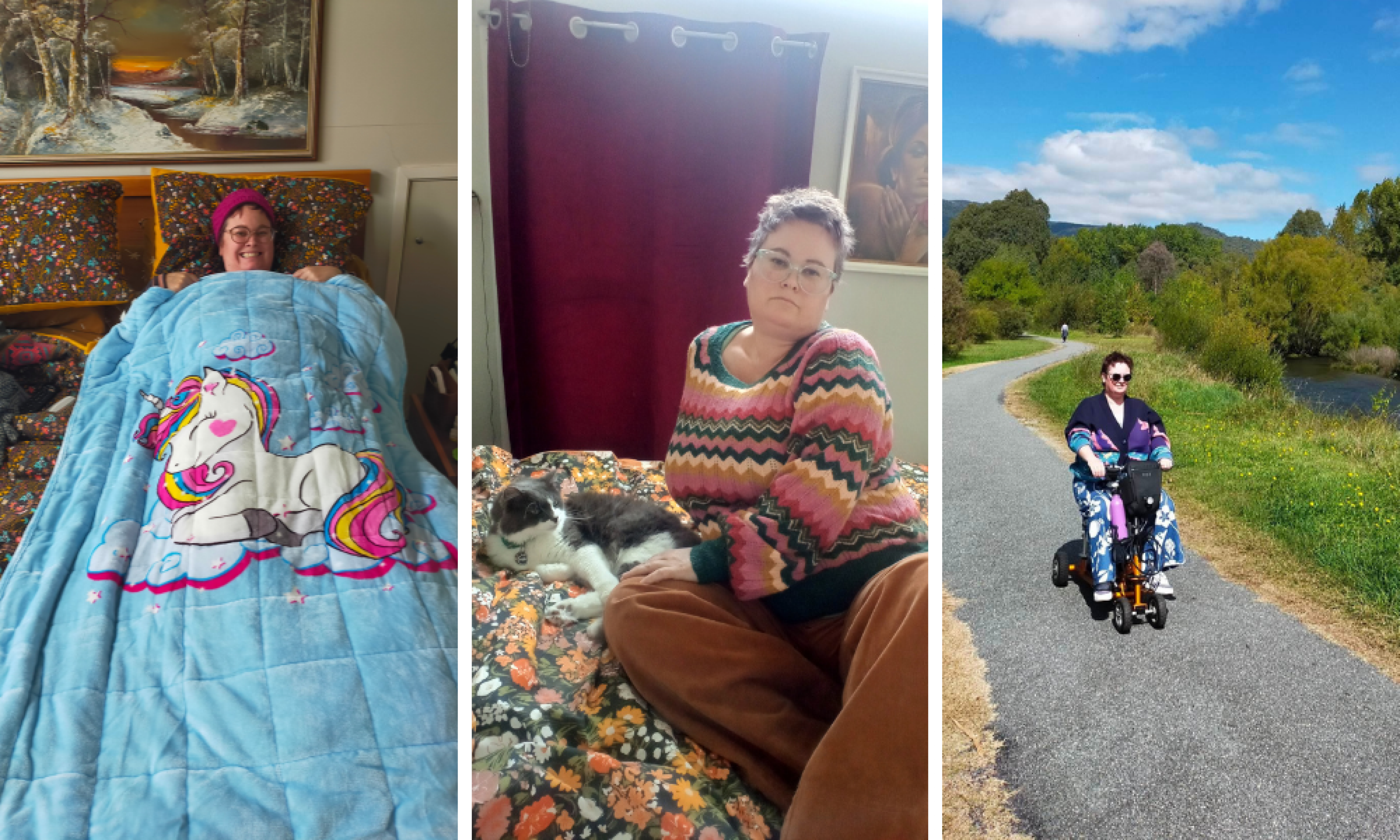Life flat out: How to live well when you can’t get up - by Charlie Park

When I tell people that I’m disabled, often they look me up and down in search of disability. The best way for me to show off my disability is to drop to the floor and flop about like a fish out of water. That would take too much energy. Instead, I explain, “I have an Energy Impairment. I have multiple incurable diseases that severely limit my energy and make my body intolerant to exertion. I spend most of my day in bed. I can do one short activity each afternoon.”
Shocked, many people blurt out, “I couldn’t live like that!” I hate the implication that my chronically ill life is unliveable, but I understand that leading a mostly housebound lifestyle is unusual and largely hidden from public view – most people just don’t know. This issue has been recently highlighted by the influx of people being disabled by Long COVID. I see the newbies crying out on social media, “How do I live like this?”
Thankfully, how to live a good life when you can’t get up isn’t a new problem. I found inspiration in Frida Kahlo painting from a wooden easel over her bed in the 1950s, and the book “How to be Sick” by psychologist and Buddhist Toni Bernhard. My first step was a mindset shift: I stopped thinking that I was on temporary sick leave waiting for a miracle treatment. I started accepting that I might be sick for a long time.
Accepting that I would be spending a lot of time in my bedroom, triggered a nesting response. I added a wall-mounted TV to watch my favourite shows, shelves to display my favourite things, stands to hold the electronic devices that connect me to the outside world, and an overbed table and bed wedge to make eating in bed easier. I decorated the walls with vintage pictures. I decorated myself in bright PJs, bedding and tattoos. I overhauled my bedside table to place self-care items within easy reach.
Next, I accepted that I could not continue doing activities designed for a regular energetic upright person. I learnt from a fellow spoonie, Claire @awarmheartedlife the idea of doing “some, not none”. I thought about how to flatten, shorten and slow my favourite activities. For example, I can no longer do 90-minute yoga classes in a heated studio, but I can do 15 minutes of bed yoga at home. Sitting for long computer gaming sessions is out, but playing chill games on my Switch from bed is in. Due to brain fog, reading books is out, but listening to Audiobooks and reading graphic novels is in. I said goodbye to golf, swing dancing and long-distance overseas travel. But hello to artmaking, writing, and short trips away to houses with different walls and windows to look at.
The final part of living a good life flat out was accepting that my chronic illnesses had created a new normal for me and that the best description of my experience was “disability”. Identifying as disabled was the key to unlocking a new tier of supports to improve my quality of life. A mobility scooter allows me to get outdoors more often and for longer periods. Disability support workers help me get things done so I can focus my precious little energy on my favourite people and activities. The few hours a month of work I now work in disability advocacy is enough to feed my need to help others. I want people living with disabling chronic illnesses to know that they aren’t alone, and that it is possible to create a meaningful life.
About the author:
Charlie Park (she/they) is an influential disability writer, educator and consultant working on Boon Wurrang Lands in Melbourne. They retired early from their career in clinical child psychology due to disabling chronic illnesses and late diagnosed Autism. Charlie now uses her lived and professional experience to advocate for a world that is more accommodating of neurodivergence and patients with chronic illnesses. Charlie is represented by @championhealthagency. Follow them @meanderingpark.
Add comment
Comments
Advocate work
Can you help a disabled ME/CFS sufferer in Queensland?

I love you! ❤️ it's so
I love you! ❤️ it's so interesting how so many of the strategies you've utilized I have naturally picked up for myself without really noticing why I was doing it! Thanks for the tips!